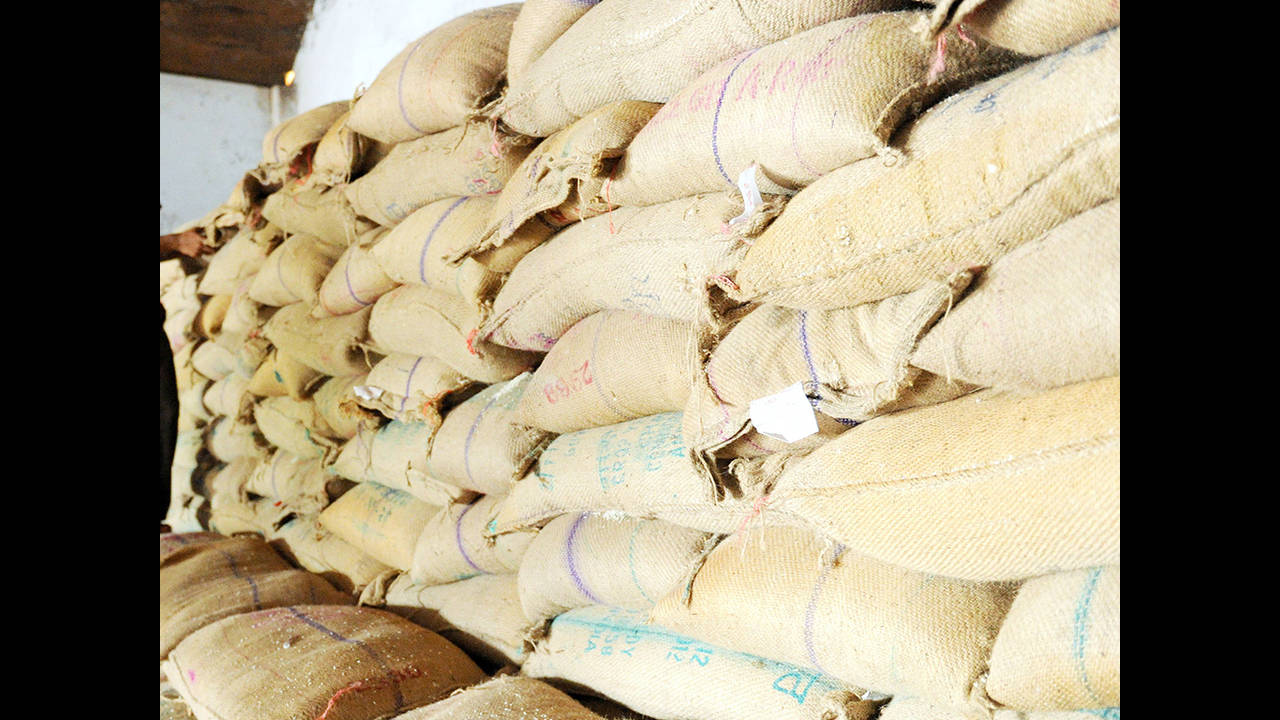MEERUT: India exports 3.5 lakh tonnes of premium quality aromatic Basmati rice to Europe, out of which 60% is produced in western UP alone. Paddy farmers here extensively use a fungicide, Tricyclazole. Until recently, the European Union had allowed a maximum residue limit (MRL) of 1 part per million (ppm) of this fungicide in the rice it imports, but has now passed a mandate that it will not allow anything more than 0.01 ppm after December 2017. This is going to adversely affect paddy farmers who are already in the middle of the cultivation cycle, with no alternative plan made by government agencies.
More than 6 lakh farmers of UP are at risk of immense loss because of lack of awareness about the EU’s police change.
Ritesh Sharma, principal scientist, Basmati Export Development Council, a body under Agriculture & Processed Food Products Export Development Authority (APEDA), said, “The approximate area of UP under basmati cultivation is 3 lakh hectares. Mainly PV1 and PV6 varieties are grown, which is 60% of the total quantity exported to Europe. Though the EU market accounts for just 9% of the total rice exports from India, the same problem will gradually crop up in other countries also.”
To reduce the MRL to 0.01 ppm is not easy, said soil scientists. Ashok Kumar, director, research, Sardar Vallabh Bhai Patel Agriculture University (SVBPU), said, “To find an alternate measure we need time to research. At this juncture, we can only ask farmers not to use Tricyclazole because we do not have any other alternative. Neck blast disease is common in India but there are always chances that the disease does not attack the crop in a particular season. But at least farmers will get correct price for their produce. If the farmer continues to use the fungicide, the crop will be disease-free but the EU market will reject it and there will be buffer stocks in the country, of which government agencies have no provision to stock. Prices will come crashing down, destroying lakhs of farmers in the process.”
All India Rice Export Association (AIREA) has initiated a mass movement to keep farmers away from Tricyclazole. And, they are in a systematic way targeting the biggest grain markets of UP.
AIREA vice president Ajay Bhalotia told TOI, “The only silver lining in the dark clouds is that neck blast attacks crops at the end of August. We still have a little above a month to address the problem. We do have an alternative and that is in the form of yet another fungicide, Isoprothiolane. Farmers do not use this product because it is 15% costlier than Tricyclazole. But considering the scale of the crisis we do not have much option.”
More than 6 lakh farmers of UP are at risk of immense loss because of lack of awareness about the EU’s police change.
Ritesh Sharma, principal scientist, Basmati Export Development Council, a body under Agriculture & Processed Food Products Export Development Authority (APEDA), said, “The approximate area of UP under basmati cultivation is 3 lakh hectares. Mainly PV1 and PV6 varieties are grown, which is 60% of the total quantity exported to Europe. Though the EU market accounts for just 9% of the total rice exports from India, the same problem will gradually crop up in other countries also.”
To reduce the MRL to 0.01 ppm is not easy, said soil scientists. Ashok Kumar, director, research, Sardar Vallabh Bhai Patel Agriculture University (SVBPU), said, “To find an alternate measure we need time to research. At this juncture, we can only ask farmers not to use Tricyclazole because we do not have any other alternative. Neck blast disease is common in India but there are always chances that the disease does not attack the crop in a particular season. But at least farmers will get correct price for their produce. If the farmer continues to use the fungicide, the crop will be disease-free but the EU market will reject it and there will be buffer stocks in the country, of which government agencies have no provision to stock. Prices will come crashing down, destroying lakhs of farmers in the process.”
All India Rice Export Association (AIREA) has initiated a mass movement to keep farmers away from Tricyclazole. And, they are in a systematic way targeting the biggest grain markets of UP.
AIREA vice president Ajay Bhalotia told TOI, “The only silver lining in the dark clouds is that neck blast attacks crops at the end of August. We still have a little above a month to address the problem. We do have an alternative and that is in the form of yet another fungicide, Isoprothiolane. Farmers do not use this product because it is 15% costlier than Tricyclazole. But considering the scale of the crisis we do not have much option.”

